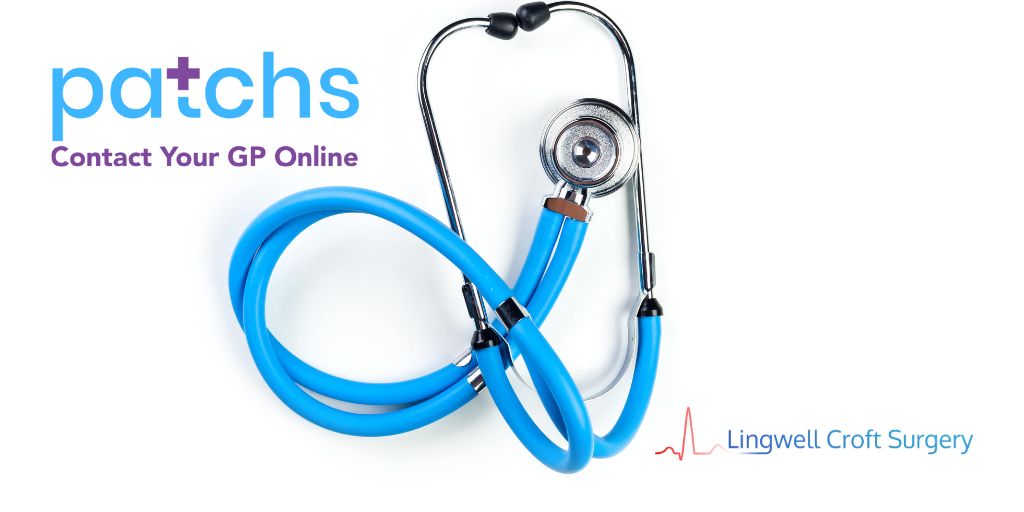
Modern general practice requires a practical, tech-centred approach. As GP surgeries strive to provide the best care to an increasingly complex and growing population while also balancing extremely tight budgets, they have often turned to technology to solve some of the most fundamental problems.
Appointment making, for example, is often digitised – saving reception time and helping make securing appointments more equitable, rather than a race to be first in the queue when phone lines open.
Yet relying on online consultations also assumes that the patient is digitally literate enough to navigate the system. Digital appointment systems have, of course, proven hugely valuable, but this key challenge is something in need of address.
Facing the challenges of a complex patient cohort at a major GP practice in Leeds
Lingwell Croft, a large and busy GP practice in Leeds (15,000+ patients), was looking for a way to implement a modern general practice model. But, operating in an urban area facing both economic deprivation and an aging population, doing so was not a straightforward task.
Increasing patient demand was creating huge pressure on the practice. What they needed was to improve triage processes and streamline or automate patient flows, whilst also finding a way to support large numbers of patients with low digital literacy.
Lingwell Croft had, like many, relied on digital approaches like online consultations as it sought to improve access. But this was presenting obstacles for many non-IT literate patients, including the elderly and those without access to smart phones or computers.
As a result, telephone lines remained overloaded as patients sought traditional means of contacting the practice. What’s more, online consultation had merely added another ‘lane on the motorway’, and served to actually increase staff workload.
Rolling out a new digital system
The Patchs Telephone Assistant is a new solution from OneAdvanced, developed following long-term user feedback of typical digital systems. Through Patchs, patients call the practice and can choose to go to the Telephone Assistant, where they answer a few questions in their own words. Revolutionary speech-recognition technology then transcribes the calls and converts them into normal online requests.
There are many benefits of this approach, including:
- Equalises access: patients who struggle with online services have a digital solution to access their GP, giving them the same access as anybody else.
- Increases patient safety: the telephone becomes a medical device thanks to AI voice transcription, capable of effectively triaging patients and removing the responsibility from receptionists, while also speeding up care delivery.
- Eliminates call waiting times: the Telephone Assistant processes an unlimited numbers of calls in parallel, reducing patient waiting times to zero and entirely eliminating the ‘8am rush’.
- Reduces receptionist talk-time: patients no longer need to speak to a receptionist to request care, freeing staff up to do other tasks.
- Improves staff wellbeing: receptionists are under less pressure to answer telephones, leading to a less stressful workplace.
- Cost savings: the Telephone Assistant is 70% cheaper than a receptionist answering patient calls.
A smoother patient experience
It remains important that patients have choice and that they feel confident with their interactions with their GP practice, so patients are offered the choice of being re-directed to Patchs Telephone Assistant or remaining in the traditional queue.
For those opting to speak to the assistant, the user journey remains broadly similar to speaking to a human being – identities are checked using names and dates of birth, then patients are asked to describe their problem. Their responses are transcribed and inputted into a form, allowing practice staff to triage as normal.
Individuals who still prefer to speak to a human, or who need to for any particular reason, can now get through to reception more easily – previous wait times were around 35 minutes.
Implementation was delivered in close consultation with Lingwell Croft’s Patient Participation Group, and all patients were notified by newsletter, social media and email.
Dramatic results in record time
The impact was dramatic and immediate. In the 12 months from February 2023 to February 2024, the practice was able to increase appointments by 12% (including a 33% increase in same day appointments), whilst reducing patient response times by a huge 58% to 1.3 hours, and simultaneously cutting all waiting times to zero.
Other key year-on-year results (February 2023 vs February 2024) include:
- 572% more online consultations completed each day
- A 42% reduction in calls to reception.
This was achieved alongside improvements to the work environment. Adding the Telephone Assistant led to the practice saving an estimated £5,030 annually; receptionists, meanwhile, saved an estimated 792 hours annually; their time freed up to do more high value work.
Caring for patients in a better way
Dr Claridge, a GP Partner at Lingwell Croft, noted, “We couldn’t have implemented our new Total Digital Triage system without it. Having voice recognition technology means our vulnerable elderly and digital illiterate patients are catered for better and get appointments much easier. Furthermore, having less phone calls has resulted in a more pleasant and calmer environment to work in.”
Patient feedback includes:
- “much better than waiting in a queue for ages”
- “best new implementation in years”
- “Brilliant, I just told my symptoms and I was phoned with a same-day appointment.”
- “It took away the frustration of a long queue. Talking to a robot to me, is easier than using the computer.”
- “Clear instructions to follow. Simple to complete.”
- “Patchs Telephone Assistance worked well for me. It was easy to navigate the options.”
- “Will definitely use this from now on!”
Find out more: https://www.oneadvanced.com/products/online-gp-consultation/



